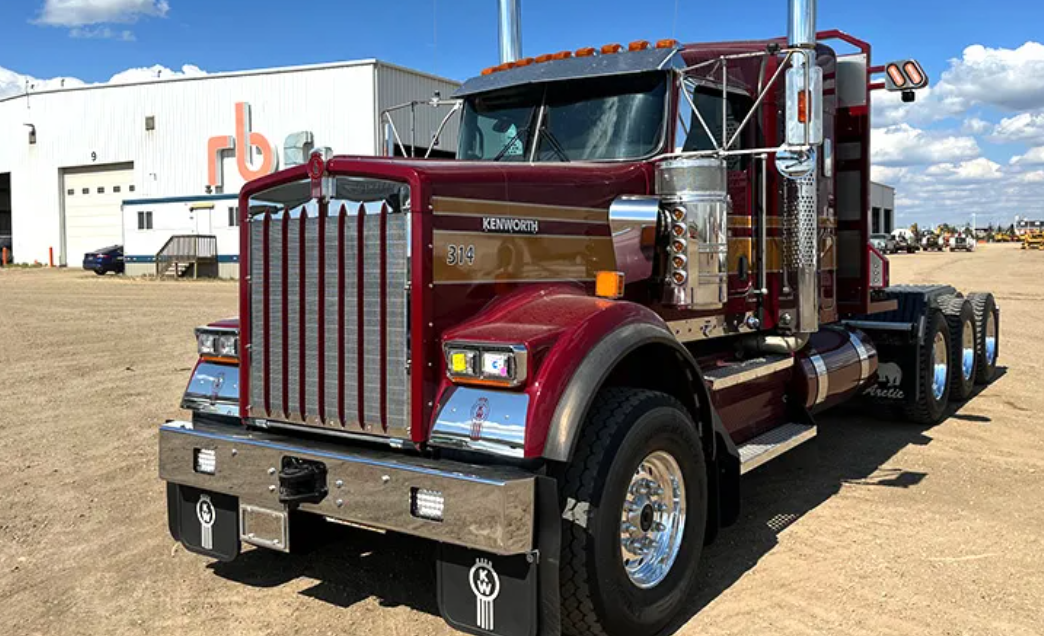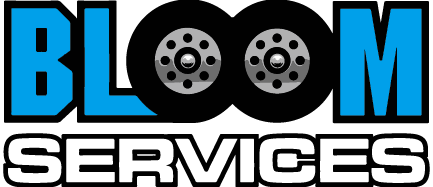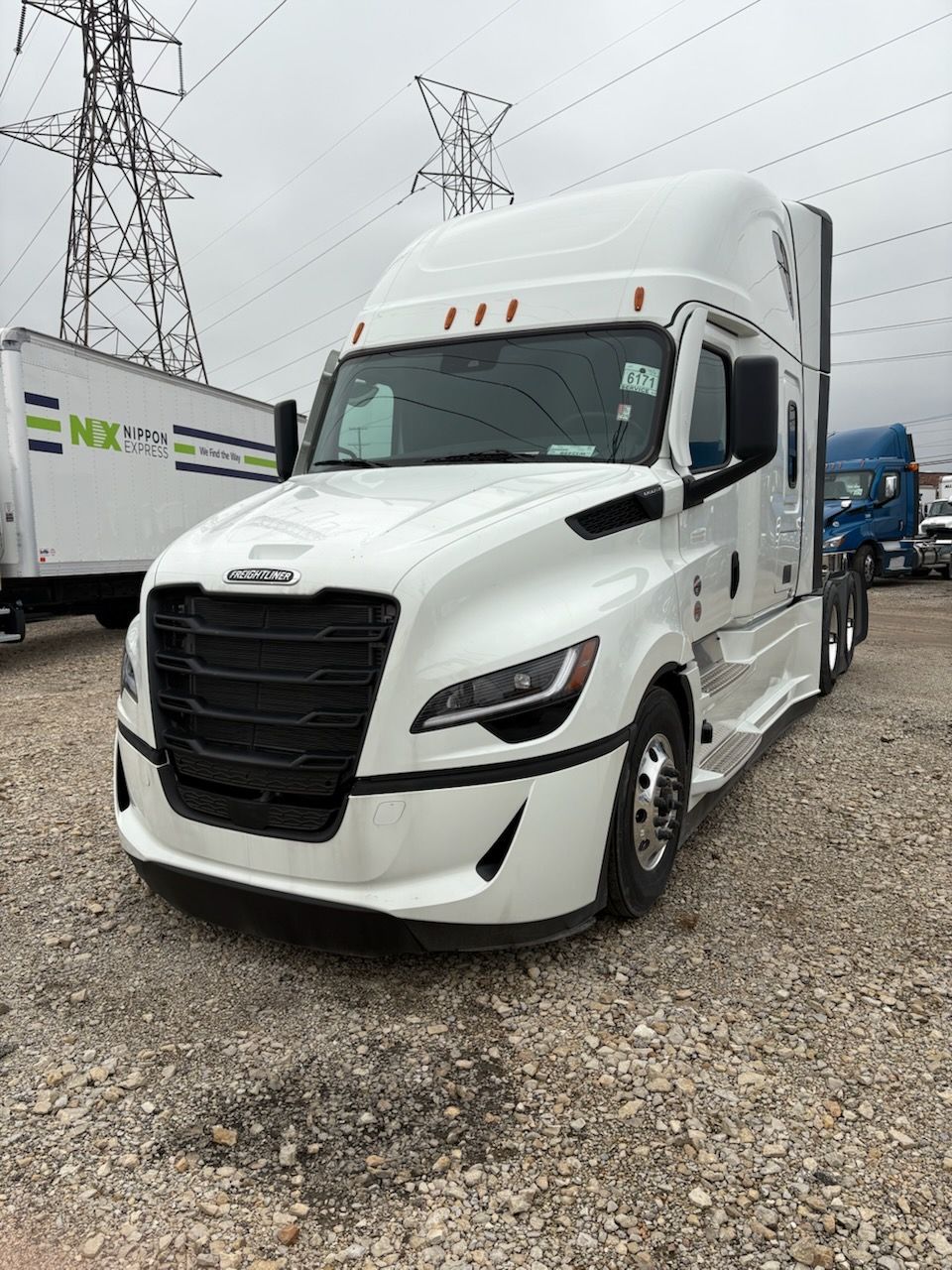How Much Do Owner-Operators Make?
Share this Article:
WRITTEN BY: BLOOM SERVICES

According to the Bureau of Labor Statistics OTR truckers in general have a median pay of $50,000 a year, this includes all categories of OTR truckers, from owner-operators to company drivers. Many websites vary with their claims on what owner-operators make, in this article we will get a clear picture of what successful owner-operators make. By success, I mean the owner-operators spend more time running than sitting at truck stops.
How Much Does an Owner Operator Make?
At Bloom, our experience is that motivated owner-operators will gross $340,000 to $400,000 or so a year. This is the gross, before all expenses, taxes, fuel, and the like. While this sounds like a lot, there is also a great deal of expense of running a truck as an owner-operator. After taxes and all expenses, our truckers net over $100,000 a year on average.
The average owner-operator might take home less a year, but what an owner-operator is able to make boils down to multiple factors. The major factor is motivation, if you are not motivated and uninterested in working hard to earn the big bucks, you should probably consider being a company driver rather than an owner-operator.
Owner-Operators vs Company Driver
Company drivers are drivers that work for carriers, it is most likely how you got started out with your CDL. You probably worked for one of the big carriers, where they paid you pennies on the mile or a salary. The average range of a company driver is $35,000 to $75,000 a year before taxes, depending on whether you are OTR or local, or the company you worked for. Some company drivers can make more than this, but they are the elite truckers that know how to manage time and work hard (these are the truckers we want at Bloom) Owner-operators on average will make 2-5 times what a company driver makes.
Besides the pay, owner-operators differ from company drivers in multiple ways. A company truck driver operates a semitruck provided by the company they are employed by. They are typically assigned loads by dispatch and receive compensation on a per-mile basis. Key aspects such as fuel, truck maintenance, and insurance are typically covered by the employing company. This position offers a stable income and a predictable work routine.
Conversely, an owner-operator is essentially an entrepreneur. Owner-operators manage an independent small trucking business, which involves one or more semi-trucks. Owner-operators enjoy the autonomy to select their own freight, either through direct clients or by leasing onto a carrier. Their responsibilities extend beyond driving; they must find suitable loads, handle business expenses, potentially make employment decisions, haul freight, maintain their vehicles, and make revenue and profit decisions. Unlike company drivers, owner-operators are responsible for all truck-related costs, including fuel, maintenance, and insurance.
Company drivers often choose this career path for its stability, predictable income, and job security. In contrast, individuals opt for the owner-operator route to establish an independent business, realize greater revenue potential, and relish the flexibility and decision-making authority that come with ownership. Depending on your ability and long-term goals, becoming an owner-operator can be rewarding.
How Do Owner-Operators Get Paid?
Owner-operators typically get paid in two main ways percentage of the load or mileage. There are benefits and cons to both, but consistency is the key regardless of how you get paid.
Percentage Gross Load
Owner-operators get paid a percentage of what the load is paying. Depending on the carrier you are working with, this percentage can vary wildly, some pay as low as 25% gross load, and others pay 80% plus. The higher paying load you receive the more money you can make, working with a good dispatch will make the difference on how much you will make. If a dispatcher only gets low paying loads, you will not earn as much. Or if you are relying only on load boards, then you could struggle with getting good loads.
Mileage
Some owner-operators get paid mileage, this is a more of a cent per mile arrangement. So, you get paid for the miles you run, but if you fail to run a certain number of miles, you won’t make any money. In both pay systems, you have to really run the miles. It is not more or less consistent than with percentage pay. Both require running loads, but getting paid gross load is far more profitable for an owner operator.
What Kind of Expenses Does an Owner-Operator Have?
Just like any business owner, truck drivers running their own businesses have different things they need to spend money on. They have to manage expenses like fuel, keeping their trucks in good shape, paying for insurance, and handling various day-to-day costs to keep things running smoothly. Below are the most frequent expenses owner-operators must pay:
Buying a Truck
The most significant expense for an owner-operator is the high cost of purchasing a semi-truck. The average cost of a new Class 8 truck is over $200,000, and even used trucks can cost upwards of $70,000.
By joining a lease-purchase program, you can avoid the high upfront costs of purchasing a truck and instead make smaller monthly or weekly payments. Or you can go the traditional route and purchase a truck with a conventional loan.
Getting conventional financing will require good credit and significant down payments. Expect Monthly payments for a new semitruck would run about $3700 to $5000 a month depending on interest rates and loan terms and other factors.
Maintenance

The average maintenance cost on a semitruck is around $8,000 to $12,000 a year, not including major repairs. You will need to budget for this expense along with budgeting for major breakdowns.
Fuel
Fuel is a major expense, investing in getting your own fuel card will be helpful. Look for cards with extra perks as well. Even cash back credit cards for fuel are always a good option. You can expect to pay $50,000 – $70,000 a year on fuel alone.
Insurance
Insurance is another expense, from health insurance to physical damage, liability, etc., you will have to have insurance. You will need to carry at a minimum these three types of insurance just for hauling cargo, more is often necessary.
Bodily injury liability: This covers damage or injuries to other people that are caused by your vehicles. The FMCSA requires a minimum of $750,000 in coverage for vehicles that transport non-hazardous goods, and a minimum of $5 million for vehicles that transport hazardous materials. Expect it to run anywhere from $6,000 to $16,000 a year.
Property damage liability: This covers damage to other people’s property that is caused by your vehicles. The FMCSA requires a minimum of $300,000 in coverage for vehicles that transport non-hazardous goods, and a minimum of $5 million for vehicles that transport hazardous materials. This will cost about $2,000 to $4,000 a year.
Bobtail Liability: It covers times when you are off duty without a trailer attached. It will cost you about $400-600 a year.
Taxes and Fees
You will also need to file taxes and pay taxes. IFTA and Heavy Vehicle Use Tax are two such taxes you will need to pay as an owner-operator.
IFTA will run about a $1,000 a year depending on your location, and Heavy Vehicle Use Tax will run you about $600 a year. Also, you will have license plates and registration to manage as well, plate registration can run up to $2,900 a year for the truck alone.
Personal taxes will be based on the company you have set up, if you are sole proprietor, or an S-Corp etc., but you will also need to file taxes. But there are multiple tax write offs available, from business purchases, truck purchases, meals on the road, maintenance, and prepaid taxes and business fees. It is best to consult an accountant to minimize your overall tax liability. To manage taxes, you ought to put away roughly 20% of your gross for taxes.
How Can Owner-Operators Make the Most Money?
Owner-operators can significantly increase their earnings by cultivating strong partnerships. A crucial aspect of this is securing the services of an efficient dispatcher. A skilled dispatcher plays a pivotal role in helping owner operators optimize their income. These dedicated professionals always prioritize the operator’s best interests, striving to secure the most lucrative loads, particularly in dynamic spot markets.
Good dispatchers keep the owner-operator’s week in mind when arranging load bookings, ensuring a consistent flow of work to keep the truck moving and income steadily flowing. Their ability to maintain excellent relationships with brokers proves invaluable, as it opens doors to higher-paying opportunities and enhances the operator’s overall earning potential. In essence, having a well-connected and proactive dispatcher can be a game-changer for owner operators seeking to maximize their profits in the industry.
Fuel Management

As an owner-operator, managing fuel expenses is vital for your profitability. Fuel costs represent one of the most significant expenses in your business, it is important to reduce these expenses. Here are some practical strategies to help you save on fuel costs:
Join a Fuel Card Program: Enrolling in a fuel card program is smart for owner-operators. Whether you opt for a credit card offering rebates or a loyalty card, like one for Flying J and Pilot, these programs provide a straightforward means of consistently lowering your fuel costs. With each fill-up, you can enjoy savings or cashback rewards, ultimately contributing to your bottom line. Here at Bloom, we provide two fuel cards, but it is recommended that you get your own.
Monitor Fuel Efficiency: Pay attention to your truck’s fuel efficiency by regularly checking and maintaining your vehicle. Proper maintenance, such as keeping tires inflated to the recommended levels and ensuring your engine is running smoothly, can lead to better fuel efficiency, ultimately saving you money.
Don’t Turn Down Loads
While it might be tempting to say no to certain loads, it’s better not to. When you’ve got a dispatcher who knows their stuff, the load they’ve lined up is usually the one that pays the most. When dealing with brokers in competitive markets, time is of the essence. If you take too long to decide, that good-paying load could disappear, leaving you with lower-paying or no loads at all. Rejecting loads means you end up sitting around for longer, wasting precious time, and potentially messing up your entire week. Smart owner-operators don’t turn down loads – they keep things rolling to make the most money and stay on track.
Tax Write Offs
When it comes to handling taxes, seek guidance from a certified accountant. However, here are some potential tax deductions that you might be eligible for, which help reduce your tax liability as an owner-operator. Many expenses related to your trucking business can be written off:
Business Essentials: This includes expenses for business permits, obtaining and renewing your Commercial Driver’s License (CDL), and the Heavy Highway Vehicle Tax, among others.
Insurance Costs: You can deduct insurance costs, both personal and for your vehicle, as part of your business expenses.
Truck Payments: This encompasses payments related to your truck, such as maintenance, repairs, tire replacements, chains, interest on loans, and any services essential for your trucking operations.
In-Truck Items: Items kept in your truck for business purposes, such as bedding, cleaning supplies, maps, electronic logging devices (ELDs), tablets, and cell phones, are also potential write-offs.
Meals: You may be able to deduct meal expenses incurred during your business travels, subject to certain IRS guidelines.
Home Office: If you maintain a dedicated home office space for administrative work related to your trucking business, you may be eligible for a home office deduction.
Other Business Expenses: Various other expenses directly associated with your trucking business, such as parking fees, tolls, and necessary supplies, can also be considered for deductions.
It’s important to consult with a qualified accountant to navigate the complexities of tax regulations effectively. Keeping detailed records and saving your receipts is recommended.
Are You Ready to Become an Owner Operator?
Are you considering taking the leap to become an owner-operator? It is a step forward in your career, offering not just independence, but also the potential for increased earnings. As an owner-operator, you’ll have the autonomy to manage your own routes and schedules. However, it’s important to be prepared for the responsibilities that come with this role. You’ll be in charge of your own truck maintenance, fuel costs, and insurance, which requires careful financial planning and management.
At Bloom, we support this transition with our rental and lease-purchase programs, allowing drivers to own a truck in three years while taking home over $3,000 a week after all expenses. If you are already an owner-operator, we help through our dispatching services and back office. Our programs are designed to set you up for success, providing you with essential resources and guidance. But it’s crucial to assess whether you meet our basic requirements, such as two years of Class A CDL experience and the ability to travel across all 48 states. If you’re ready to embrace the challenges and rewards of being an owner-operator, Bloom could be your next big step. Remember, with great freedom comes great responsibility, and the road to becoming a successful owner-operator requires dedication, hard work, and strategic planning. If you want to know more, contact us today.



